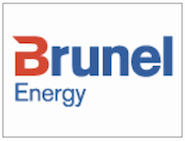 Top Class Action Lawsuits
Top Class Action Lawsuits
Speaking of wrinkles—it appears that Estée Lauder has hit one. The maker of Clinique cosmetic and skin care products is the latest to face a consumer fraud class action lawsuit over allegations of false and deceptive marketing practices.
In the Clinique false advertising lawsuit, entitled Margaret Ohayon et al. v. Estee Lauder Inc. et al., Case No. 2:33-av-00001, U.S. District Court for the District of New Jersey, plaintiff Margaret Ohayon alleges Estee Lauder uses deceptive advertising tactics to promote its Clinique Repairwear, Youth Surge and Turnaround collection as having the ability to make wrinkles “disappear,” rebuild firming collagen, and produce other anti-aging benefits.
The lawsuit alleges that if, in fact, the Clinique products could “rebuild stores of natural collagen” or “deliver 63% of the visible wrinkle-reducing power of a laser procedure,” the products would be regulated by the Food and Drug Administration. Not to mention your girlfriends would be all over it—like you could keep the effects a secret—I don’t think so.
The Clinique consumer fraud class action lawsuit is brought on behalf of a proposed class of all consumers who have purchased at least one Clinique product from the Repairwear, Youth Surge or Turnaround collection in the US.
The lawsuit seeks compensatory, treble and punitive damages; restitution; injunctive relief and more for alleged breach of express warranty, unjust enrichment, and violations of the New Jersey Consumer Fraud Act and consumer fraud laws of various states.
Top Settlements
Heads up: Taxing Situation at Dell… An unfair business practices class action lawsuit filed in California against Dell Computer Corp, has reached a tentative settlement totaling $275 million in potential refunds.
The class action lawsuit revolves around the payment of California sales tax on Dell service contracts…read on…
The lawsuit, entitled Mohan, et al. v. Dell, Inc. et al. alleged the Defendants (Dell Inc. f/k/a/ Dell Computer Corp.; Dell Marketing LP (“DMLP”), on its own behalf and as successor by merger to Dell Catalog Sales LP (“DCSLP”); BancTec, Inc.; and Worldwide Tech Services, LLC f/k/a/ QualxServ LLC) improperly charged California use tax on purchases of certain Optional Service Contracts and remitted these taxes to the California State Board of Equalization (“SBE”).
The parties have reached two distinct settlement agreements to resolve the legal action: the Dell Settlement and the SBE Settlement. Under the terms of the respective settlements, which cover purchases made between April 8, 1999 and June 30, 2008, funding for the settlements will be provided by Dell and the California State Board of Equalization. The settlements followed a 2006 trial court’s decision, later affirmed on appeal by the California Court of Appeals in 2008, ruling that optional service contracts sold by Dell were not subject to California sales or use tax, as they did not constitute tangible personal property and were readily separable from the computer hardware with which they were sold.
Further, the terms of the two settlements stipulate that customers of Dell who purchased and paid tax on service contracts covering computer hardware during the class action period will be entitled to a full refund of all such taxes that they paid.
The settlement consists of more than $275 million in refunds. Notices will be mailed to customers informing them of the amounts of refunds available to them and instructions for the timely filing of claims. The Court will review the settlement agreements at the Final Hearing to be held in April, 2013.
Class members who are eligible to receive a refund under one or both of these settlement agreements must file a claim or claims to receive any refund(s). Each settlement agreement has different criteria for eligibility. For more information on eligibility and how to file a claim for the separate settlements, visit sctaxsett.com.
Welcome Home[Owner] News. This one’s a whopper…and some welcome news for home owners who suffered dodgy loan servicing and/or foreclosure at the hands of Morgan Stanley or Goldman Sachs. This week the Federal Reserve announced it has reached a settlement with the two financial institutions over alleged loan servicing and foreclosure abuses.
Under the terms of the settlement, reported by CNNMoney.com, Morgan Stanley will provide $97 million in direct cash payments to borrowers and $130 million worth of other relief, including loan modifications and the forgiveness of deficiency judgments. Goldman will pay $135 million to borrowers with a further $195 million provided as relief.
Here’s the skinny. The settlement provides for over 220,000 homeowners who held mortgages with the two banks’ former subsidiaries: Goldman’s Litton Loan Servicing and Morgan’s Saxon Mortgage Services, and subsequently faced foreclosure in 2009 and 2010. According to CNNMoney.com “over four million borrowers will split a total of $3.5 billion in cash compensation, with payments ranging from a few hundred dollars to potentially as much as $125,000 in a small percentage of cases. Those eligible are expected to be contacted by the end of March, regulators said.”
This settlement follows the $8.5 billion agreement announced last week by the Federal Reserve and the Office of the Comptroller of the Currency with 10 other banks over foreclosure issues.
Goldman Sachs was ordered to review its subsidiary’s foreclosure practices in September 2011, as was Morgan Stanley in April 2012. Those reviews were not initiated and will now be scrapped as a result of this settlement deal.
Well this news is worth a minor celebration—on top of the fact that it’s Friday. So—see you at the bar!



